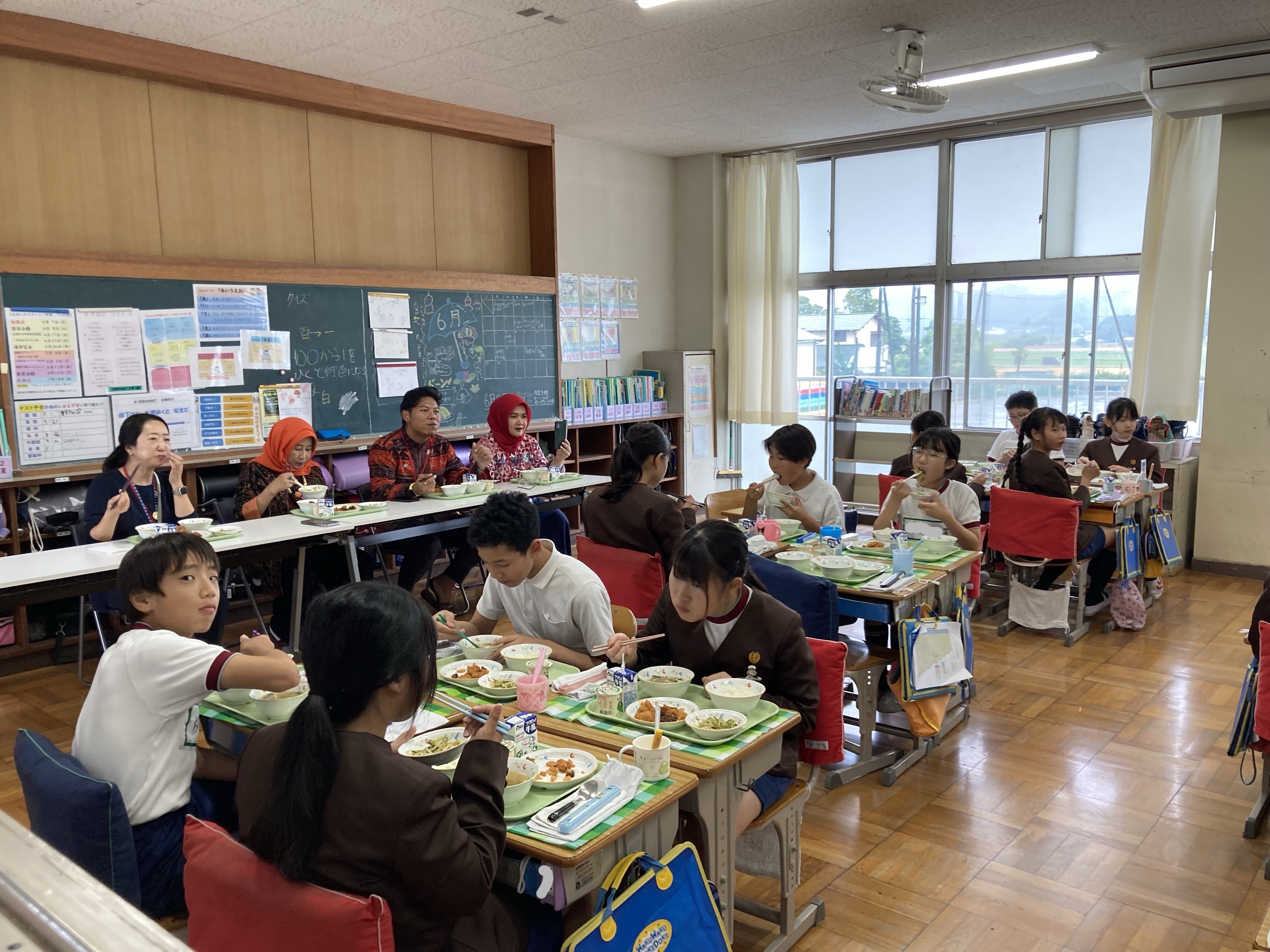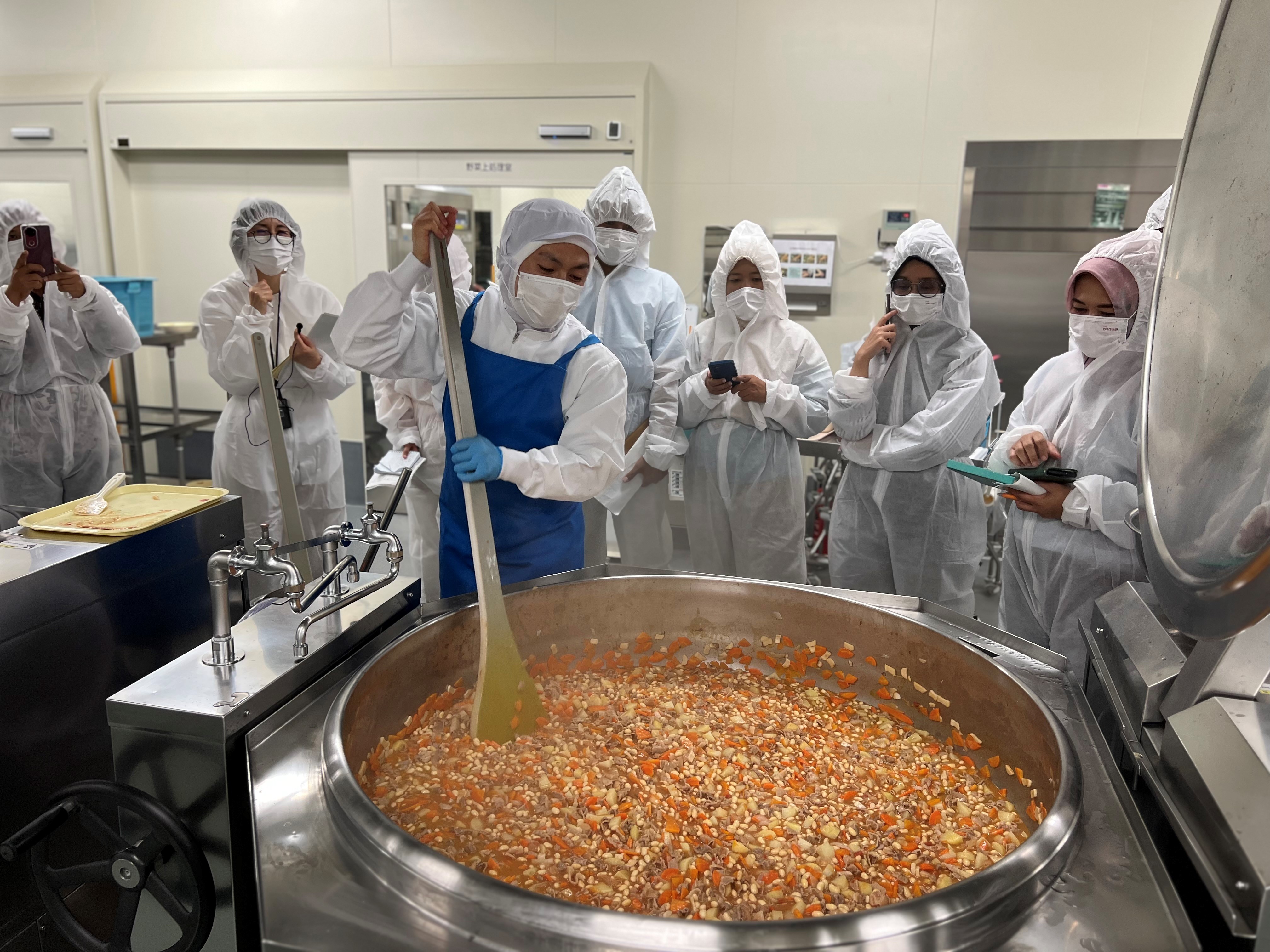JICA Supports Indonesia's Nutritious Meal Program Through the Training
2025.06.16
The Japan International Cooperation Agency (JICA) conducted a training program on Japan's school meal system for Indonesian government officials from May 26 to June 6, 2025, in Shizuoka and Aichi Prefectures. The program brought together Indonesian officials from diverse agencies involved in school meal operations, including the Ministry of Health, Ministry of Primary and Secondary Education, Ministry of Religious Affairs, and notably the National Nutrition Agency, with participants including monitoring department officials and directors of Nutrition Service Units (SPPG). The training focused on meal program management, hygiene control, and food waste reduction.
The Government of Indonesia aims to achieve Golden Indonesia by 2045 and is committed to "building a healthy, intelligent, and productive generation." To support this goal, the country launched its Free Nutritious Meal Program in January 2025, which will gradually expand to serve approximately 80 million beneficiaries, including pregnant women, children under 5, and students from kindergarten through high school, including madrasah and pesantren.
This training program represents the second year of cooperation designed to enhance the operation of Indonesia's large-scale program and improve children's nutrition by sharing Japan's technical expertise and know-how in school meals and shokuiku (food and nutrition education). This year's program focuses on three key themes: hygiene management, food waste reduction, and shokuiku.
Hygiene management has received particular emphasis, as food poisoning incidents have become a significant social issue in Indonesia, making sanitation in large-scale food preparation a critical challenge. Beyond lectures on hygiene management in mass cooking by Japan's Ministry of Health, Labour and Welfare, participants gained hands-on experience by entering active school meal preparation facilities to observe hygiene-based workflow patterns and management techniques employed by on-site supervisors. For food waste reduction, the Ministry of the Environment presented initiatives to minimize food waste in school meals, while participants visited back-of-house operations at major retail companies to learn practical approaches to gabage separation and inventory management. The program also deepened participants’ understanding of locally-sourced meal program and shokuiku led by local governments. At elementary school, participants experienced shokuiku firsthand by sharing meals with students and observing how school meals serves as “living educational materials.” Additionally, they received comprehensive training from the Ministry of Education, Culture, Sports, Science and Technology on shokuiku monitoring and evaluation methods, educational material utilization, and the integration of adolescent shokuiku with school health programs.
Participants commented that they were "impressed by the meticulous hygiene management implemented to protect children's health" and "learned that school meals hold meaning beyond just food for Japanese children." This training is expected to significantly contribute to improving nutrition for children throughout Indonesia.
■About this program
Ms. Kawamoto
TEL: +62-21-5795-2112 (ex.312)
Email: Kawamoto.Hanako2@jica.go.jp
■About JICA Indonesia in general
Ms. Putri Siahaan
TEL: +62-21-5795-2112 (ex.222)
Email: PutriSiahaan.IN@jica.go.jp

The training participants eat with the Japanese elementary school's 6th grade students.

The training participants visited the kitchen facilities.
scroll